Nigeria
Nigeria’s former president, Goodluck Ebele Jonathan, has rejected reports that he refused an offer by the British government to help in the rescue of the abducted Chibok girls in 2014.
A statement by his spokesman, Ikechukwu Eze, said then President Jonathan did not rebuff the UK’s offer but rather personally sent correspondence to the United States, France and the UK to help the rescue efforts – he also cited request or assistance from China and Israel.
‘‘In fact, the Jonathan administration was so genuinely supportive that the foreign powers involved were granted permission to overfly our airspace, while conducting the search and rescue missions.
‘‘We are, however, not surprised that this kind of concocted story is coming out at this point in time, as it appears that some people who have obviously been playing politics with the issue of the Chibok girls will stop at nothing to further their interest,’‘ the statement added.
The story alleging that the Jonathan government rejected assistance in the early days of the abduction was carried by the UK’s Guardian newspaper last Saturday (March 4) in a story titled, “Nigeria rejected British offer to rescue seized Chibok schoolgirls.”
The Guardian cited another portal, the Observer, which said according to a mission named Operation Turus, the Royal Air Force (RAF) conducted reconnaissance in Nigeria’s north for months following the kidnapping.
‘‘The girls were located in the first few weeks of the RAF mission, we offered to rescue them, but the Nigerian government declined,’‘ a source involved in the operation told the Observer. The source added that the girls were subsequently dispersed into smaller groups over the following months.
The Guardian article also quotes notes from meetings between Nigerian and UK officials via the Freedom of Information Act, which further suggested that Nigeria welcomed international aid and assistance in looking for the girls but saw the rescue as a ‘national issue.’
They went on to quote Jonathan in a meeting with UK’s then Africa minister, Mark Simmonds on 15 May 2014 – a month after the abduction, saying; ‘‘Nigeria’s intelligence and military services must solve the ultimate problem.’‘
The Boko Haram insurgents in April 2014 stormed a boarding school in the town of Chibok, located in the northeastern Borno State stealing over 270 girls. The incident sparked global outrage and a call for their immediate rescue by the then government.
Aside the about 50 girls who managed to escape after the incident in the early days, none of the others were rescued till the Goodluck Jonathan administration lost elections in 2015.
The Muhammadu Buhari led government despite actively engaging Boko Haram in anti-insurgency combat has managed to use international mediation to secure the release of about 20 girls last year.
The army has also independently found two of the girls on the fringes of the Sambisa Forest, the main bastion of the insurgents. The army, last December, also reported taking over Camp Zero in the forest – it was said to be the heart of the group.
The Bring Back Our Girls (BBOG) group continue to campaign for the release of the remaining 195 girls still under captivity.
April 14, 2017, will mark three years since there were abducted. Boko Haram have periodically released videos of the girls stating that they will only exchange them for their commanders held in prisons across the country.





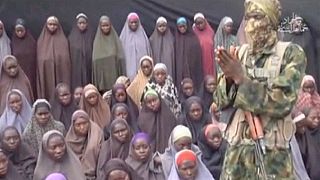
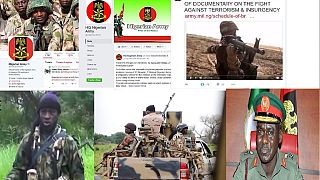
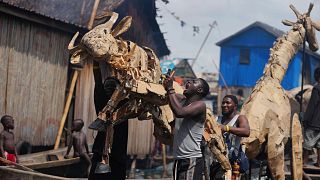
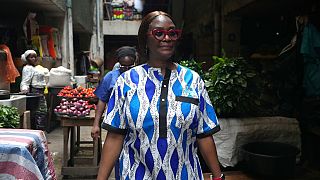
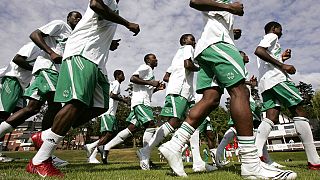



Go to video
Benin says 54 soldiers killed in Islamic militant attack
Go to video
Burkina Faso military government says it thwarted "major" coup attempt
Go to video
Funeral held in Kenya for TikTok content moderator
Go to video
Scores killed in attack by gunmen in central Nigeria
01:09
Yinka Shonibare explores identity and hybridity in new Madagascar exhibition
Go to video
A British woman gives birth after UK’s first womb transplant